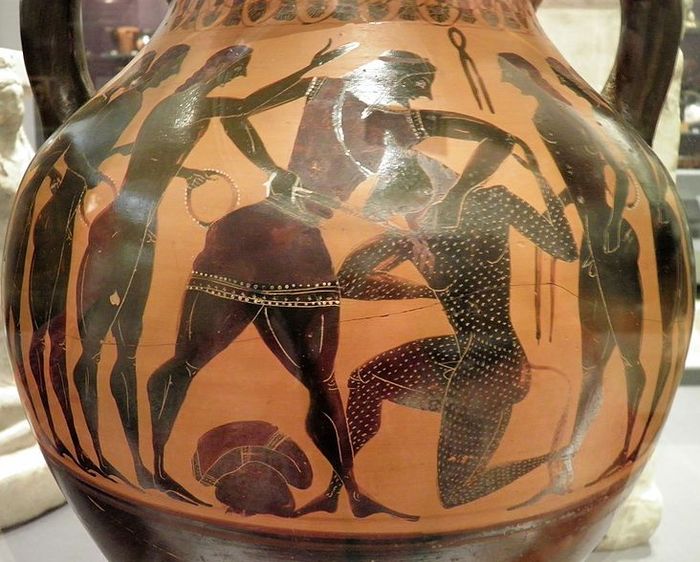Jesop (6th Century, B.C.?)
Jesop was “not a poet,” says Gilbert Murray, “but the legendary author of a particular type of story.” This type is known as the Beast Fable, a brief incident related in order to point a simple moral. According to tradition Jesop was a foreign slave of the Sixth Century B.C. Whether the fables of ancient India, such as those in the Hitopadesa, influenced the ancient Greeks and Romans is a question still debated by scholars. At any rate there is a striking similarity, both in treatment and subject-matter, between the Fables of Jesop, Phaedrus and Avianus, and those which delighted the Indians.
The present translation was made by James and published first in 1848.
The Country Mouse and the Town Mouse
Once upon a time a Country Mouse who had a friend in town invited him, for old acquaintance` sake, to pay him a visit in the country. The invitation being accepted in due form, the Country Mouse, though plain and rough and somewhat frugal in his nature opened his heart and store, in honor of hospitality and an old friend.
There was not a carefully stored-up morsel that he did not bring forth out of his larder, peas and barley, cheese-parings and nuts, hoping by quantity to make up what he feared was wanting in quality, to suit the palate of his dainty guest. The Town Mouse, condescending to pick a bit here and a bit there, while the host sat nibbling a blade of barley- straw, at length exclaimed, “How is it, my good friend, that you can endure the dullness of this unpolished life? You are living like a toad in a hole. You can`t really prefer these solitary rocks and woods to streets teeming with carriages and men. On my honor, you are wasting your time miserably here. We must make the most of life while it lasts.
A mouse, you know, does not live forever. So come with me and I`ll show you life and the town.” Overpowered with such fine words and so polished a manner, the Country Mouse assented; and they set out together on their journey to town. It was late in the evening when they crept stealthily into the city, and midnight ere they reached the great house, where the Town Mouse took up his quarters. Here were couches of crimson velvet, carvings in ivory, everything in short that denoted wealth and luxury.
On the table were the remains of a splendid banquet, to procure which all the choicest shops in the town had been ransacked the day before. It was now the turn of the courtier to play the host; he places his country friend on purple, runs to and fro to supply all his wants, presses dish upon dish and dainty upon dainty, and as though he were waiting on a king, tastes every course ere he ventures to place it before his rustic cousin.
The Country Mouse, for his part, affects to make himself quite at home, and blesses the good fortune that had wrought such a change in his way of life; when, in the midst of his enjoyment, as he is thinking with contempt of the poor fare he has forsaken, on a sudden the door flies open, and a party of revellers returning from a late entertainment, bursts into the room. The affrighted friends jump from the table in the greatest consternation and hide themselves in the first corner they can reach.
Country Mouse
No sooner do they venture to creep out again than the barking of dogs drives them back in still greater terror than before. At length, when things seemed quiet, the Country Mouse stole out from his hiding place, and bidding his friend good-bye, whispered in his ear, “Oh, my good sir, this fine mode of living may do for those who like it; but give me my barley-bread in peace and security before the daintiest feast where Fear and Care are in waiting.”
Read More about Pomorie Tours









[…] The whole text can be seen on link The Country Mouse and the Town Mouse. […]
[…] The whole text can be seen on link The Country Mouse and the Town Mouse […]
[…] The whole text can be seen on link The Country Mouse and the Town Mouse […]
[…] The whole text can be seen on link The Country Mouse and the Town Mouse. […]
[…] The whole text can be seen on link The Country Mouse and the Town Mouse […]
[…] The whole text can be seen on link The Country Mouse and the Town Mouse […]
[…] The whole text can be seen on link The Country Mouse and the Town Mouse. […]
Comments are closed.